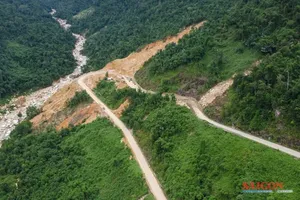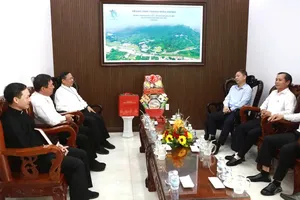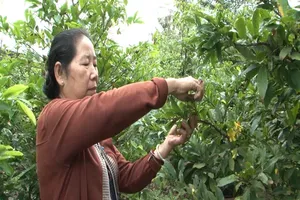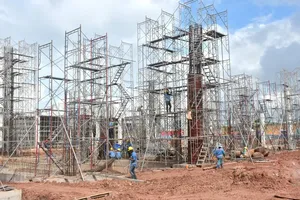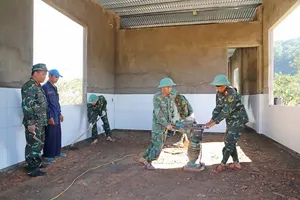A farm can become a success story if its produce is identified along with it’s market value and profitability, experts said as mentioning on the downturn of farms in the Mekong Delta during the past several years.
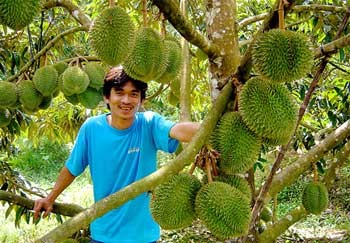
A farmer in his durian farm in Ngu Hiep Commune, Cai Lay District, Tien Giang Province. (Photo: SGGP)
Mr. Tran Tuan, deputy head of the Social and Economic Bureau under the Steering Board for Southwestern Region Development said to Sai Gon Giai Phong newspaper that activities in the farms must be realistic and based on prevalent and existing conditions rather than theory.
Some experts agree that the economy of farms in the region had developed too fast without any thought to its sustainability. However, there are still a few viable business models that can be replicated.
Joint efforts to progess.
The success of the black tiger shrimp farms in the Trung Binh Commune, Tran De District, Soc Trang Province, is a prominent example of how teamwork can benefit and prosper.
Some farms joined hands to set up a common water supply and drainage system for their shrimp breeding pools and constructed new roads to move their produce easily. They established close business relationships with local seafood processors and exporters and created outlets for their produce. By joining hands with each other, they have been able to run their farms efficiently and have subsequently seen tremendous growth as well.
The tra fish cooperative led by Nguyen Ngoc Hai in Thoi An Commune, O Mon District, Can Tho Province is a good business model. The cooperative, which consists of a group of farms, has collaborated with a tra fish processing and exporting company. This collaboration works well in a corporate culture where the company share it’s expertise and marketing skills and the cooperative focuses on good production.
Such business models are sure to see success in quality, production and future sustainability. Good economic results prove lucrative for all, especially for members of the cooperative.
Nguyen Van Mi, head of the Agriculture and Rural Development of Tri Ton District, An Giang Province, had observed that the district had 220 local farms that had shown as profits. However, they accounted for just 10 percent or 4,000 hectares of the district’s total farmland area.
The Tri Ton district People’s Committee is implementing a program by which farm owners and skilled farmers will be able to jointly set up and develop a large-scale aquaculture area. The district authorities will act as intermediaries between farm owners and the local buyers and exporters. Most farm owners in Tri Ton have agreed to join the program.
Incentives are vital for farmers.
Deputy Head of the Can Tho City Department of Agriculture and Rural Development, Nguyen Minh Hien, claims they have proposed to the City People’s Committee to put forward policies for supporting farms and boosting the economy.
Mr Hien also believes that farm policies must take into account indigenous features of a region such as plants, livestock, poultry or aquatic animals that thrive there. Also, greater emphasis must be given to training courses on food production, techniques and management skills.
He also emphasized that preferential treatment concerning tax, lending, land and trade promotion should be made more accessible to farmers, and that all investment must be closely monitored. Farmers should be supported at every stage. He believed that for the past ten years, many provinces in the Mekong Delta had not paid enough attention to creating favorable conditions for the development of the farm economy.
Experts advise farm owners to invest in their business sensibly and in phases so as to have the necessary funds to maintain and expand when required. They also called on farms to apply new scientific and technological methods to increase output and improve product quality.
Mr. Tuan thinks that farms must also develop cost-effective production methods and enhance their competitiveness in the market. Each province should review its actual situation and seek solutions for development based on its own indigenous conditions.
Farm economy can once again grow on the rebound if every farm owner identifies his objective and works on a sustainable plan to achieve that objective.
Related Articles:
Farms face downturn in Mekong Delta







